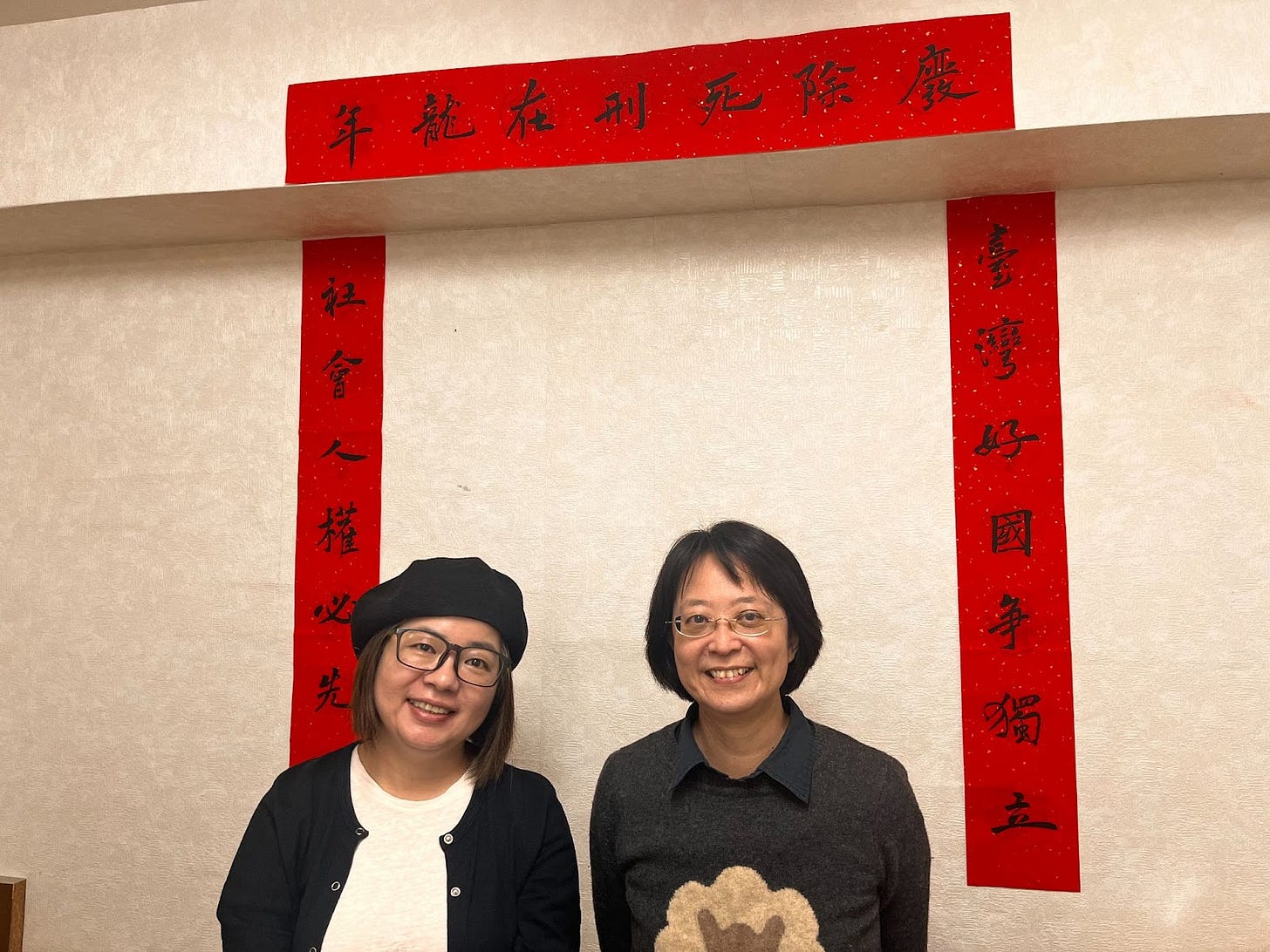Death Penalty Abolition: A Potentially Historic Moment in Taiwan
Interview with Chuanfen Chang and Hsinyi Lin, advocates of abolishing the death penalty
On Tuesday, April 23rd, the Taiwanese Constitutional Court will review the constitutionality of the death penalty. This is a closely watched case here, and potentially a historic moment. As we’ve written previously, the death penalty is divisive (Chinese version here) in Taiwan.
To make sense of the situation, we talked to two people at the helm of the Taiwanese Alliance to End the Death Penalty (TAEDP), and whom we admire deeply: Chuanfen Chang (張娟芬), an eminent author and the chairperson of TAEDP, and Hsinyi Lin (林欣怡), its executive director. This interview, conducted in early March, explores the highs and lows of their work, public opinion, and Tuesday’s hearing.





